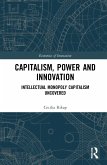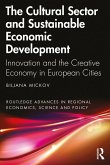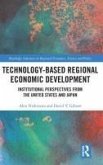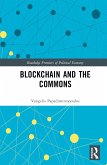In contemporary global capitalism, the most powerful corporations are innovation or intellectual monopolies. The book's unique perspective focuses on how private ownership and control of knowledge and data have become a major source of rent and power. The author explains how at the one pole, these corporations concentrate income, property and power in the United States, China, and in a handful of intellectual monopolies, particularly from digital and pharmaceutical industries, while at the other pole developing countries are left further behind.
The book includes detailed empirical mappings of how intellectual monopolies develop and transform knowledge from universities and open-source collaborations into intangible assets. The result is a strategy that combines undermining the commons through privatization with harvesting from the same commons. The book ends with provoking reflections to tilt the scale against intellectual monopoly capitalism and arguing that desired changes require democratic mobilization of workers and citizens at large.
This book represents one of the first attempts to capture the contours of an emerging new era where old perspectives lead us astray, and the old policy toolbox is hopelessly inadequate. This is true for the idea that the best, or only, way to promote innovation is to transform knowledge into private property. It is also true for anti-trust policies focusing exclusively on consumer prices. The formation of global infrastructures that lead to natural monopolies calls for public rather than private ownership.
Scholars and professionals from the social sciences and humanities (in particular economics, sociology, political science, geography, educational science and science and technology studies) will enjoy a clear and all-embracing depiction of innovation dynamics in contemporary capitalism, with a particular focus on asymmetries between actors, regions and topics. In fact, its topical issue broadens the book's scope to those curious about how innovation networks shape our world.
Capitalism, Power and Innovation has won the Joan Robinson Prize, which is awarded biennially for the best monograph on a theme broadly in accord with the European Association for Evolutionary Political Economy (EAEPE) theoretical perspectives.
The book includes detailed empirical mappings of how intellectual monopolies develop and transform knowledge from universities and open-source collaborations into intangible assets. The result is a strategy that combines undermining the commons through privatization with harvesting from the same commons. The book ends with provoking reflections to tilt the scale against intellectual monopoly capitalism and arguing that desired changes require democratic mobilization of workers and citizens at large.
This book represents one of the first attempts to capture the contours of an emerging new era where old perspectives lead us astray, and the old policy toolbox is hopelessly inadequate. This is true for the idea that the best, or only, way to promote innovation is to transform knowledge into private property. It is also true for anti-trust policies focusing exclusively on consumer prices. The formation of global infrastructures that lead to natural monopolies calls for public rather than private ownership.
Scholars and professionals from the social sciences and humanities (in particular economics, sociology, political science, geography, educational science and science and technology studies) will enjoy a clear and all-embracing depiction of innovation dynamics in contemporary capitalism, with a particular focus on asymmetries between actors, regions and topics. In fact, its topical issue broadens the book's scope to those curious about how innovation networks shape our world.
Capitalism, Power and Innovation has won the Joan Robinson Prize, which is awarded biennially for the best monograph on a theme broadly in accord with the European Association for Evolutionary Political Economy (EAEPE) theoretical perspectives.
"This book is important reading for scholars and policy makers. It captures the contours of an emerging new era where global monopoly power increasingly is based on knowledge assets and access to data. It includes detailed empirical mappings of how digital intellectual monopolies, primarily located in the US and China, develop and transform knowledge from universities and open source collaborations into intangible assets. It shows how intellectual monopoly capitalism reinforces global inequality. The book raises important issues in relation to current views on intellectual property, anti-trust policy and development strategies." - Bengt-Åke Lundvall, Emeritus Professor, Aalborg University and Lund University.
"Capitalism, Power and Innovation is a must read for scholars, policy makers, and activists who would like to understand the developing forms of intellectual monopoly capitalism. The volume brings together theoretical analyses, empirical research, and case studies and presents the reader with new insights on the rise of intellectual monopolies in sectors such as technology and pharmaceuticals; the interplays of the US and China through their intellectual monopolies; and the impact of intellectual monopoly capitalism on developing economies. As such, it not only provides an elaboration of the emergence and the rise of the intellectual monopolies but also untangles the effects of intellectual monopoly capitalism at various levels. The contributions in this volume are also an excellent starting point for researchers delving into the question of how science and technology is being transformed by powerful interests in modern capitalism." Prof. Özgür Orhangazi, Kadir Has University.
"Knowledge and innovation can be the basis of development. Much of today's innovation occurs in transnational innovation networks. This book asserts that these networks are organized through power relations and are increasingly dominated by intellectual monopolies. Unfortunately, the developing countries participating in these networks are not approaching the borders or advancing on the path of development. Cecilia Rikap contributes new evidence and looks through different lenses at the relationship between knowledge, innovation networks and power. She analyses how intellectual income is captured, what are the channels for that and who captures it. On this basis, she proposes specific policies to allow developing countries to benefit more from the knowledge created even in these countries, and to avoid an extractivism of pure knowledge from the periphery to the centre. Thank you for this effort, which nurtures the discussion to have a better and less unequal world." - Gabriela Dutrénit, Distinguished Professor at the Autonomous Metropolitan University and coordinator of the Latin American Network on Learning, Innovation and Competence building (LALICS).
"In a time when intangible assets have become a critical factor of value creation and economic growth, our understanding of capitalism and its implications needs ground-breaking thinking. Cecilia Rikap's book on Capitalism, Power and Innovation presents frontier research on the nature and formation of intellectual monopoly capitalism and its impact of the peripheries. It is a must read for scholars and policy makers." - Prof. Xiaolan Fu, Technology and Management Centre for Development, Department of International Development, University of Oxford
"Capitalism, Power and Innovation gives us the right tools to understand how a digitalisation driven by an interplay between the US GAFA (Google, Apple, Facebook and Amazon) and the likes from China can deeply constrain countries development and the fate of workers around the world. This roadmap is thus very welcome." - Prof. Pascal Petit, Emeritus Research Director at the CNRS.
"Capitalism, Power and Innovation is a must read for scholars, policy makers, and activists who would like to understand the developing forms of intellectual monopoly capitalism. The volume brings together theoretical analyses, empirical research, and case studies and presents the reader with new insights on the rise of intellectual monopolies in sectors such as technology and pharmaceuticals; the interplays of the US and China through their intellectual monopolies; and the impact of intellectual monopoly capitalism on developing economies. As such, it not only provides an elaboration of the emergence and the rise of the intellectual monopolies but also untangles the effects of intellectual monopoly capitalism at various levels. The contributions in this volume are also an excellent starting point for researchers delving into the question of how science and technology is being transformed by powerful interests in modern capitalism." Prof. Özgür Orhangazi, Kadir Has University.
"Knowledge and innovation can be the basis of development. Much of today's innovation occurs in transnational innovation networks. This book asserts that these networks are organized through power relations and are increasingly dominated by intellectual monopolies. Unfortunately, the developing countries participating in these networks are not approaching the borders or advancing on the path of development. Cecilia Rikap contributes new evidence and looks through different lenses at the relationship between knowledge, innovation networks and power. She analyses how intellectual income is captured, what are the channels for that and who captures it. On this basis, she proposes specific policies to allow developing countries to benefit more from the knowledge created even in these countries, and to avoid an extractivism of pure knowledge from the periphery to the centre. Thank you for this effort, which nurtures the discussion to have a better and less unequal world." - Gabriela Dutrénit, Distinguished Professor at the Autonomous Metropolitan University and coordinator of the Latin American Network on Learning, Innovation and Competence building (LALICS).
"In a time when intangible assets have become a critical factor of value creation and economic growth, our understanding of capitalism and its implications needs ground-breaking thinking. Cecilia Rikap's book on Capitalism, Power and Innovation presents frontier research on the nature and formation of intellectual monopoly capitalism and its impact of the peripheries. It is a must read for scholars and policy makers." - Prof. Xiaolan Fu, Technology and Management Centre for Development, Department of International Development, University of Oxford
"Capitalism, Power and Innovation gives us the right tools to understand how a digitalisation driven by an interplay between the US GAFA (Google, Apple, Facebook and Amazon) and the likes from China can deeply constrain countries development and the fate of workers around the world. This roadmap is thus very welcome." - Prof. Pascal Petit, Emeritus Research Director at the CNRS.








